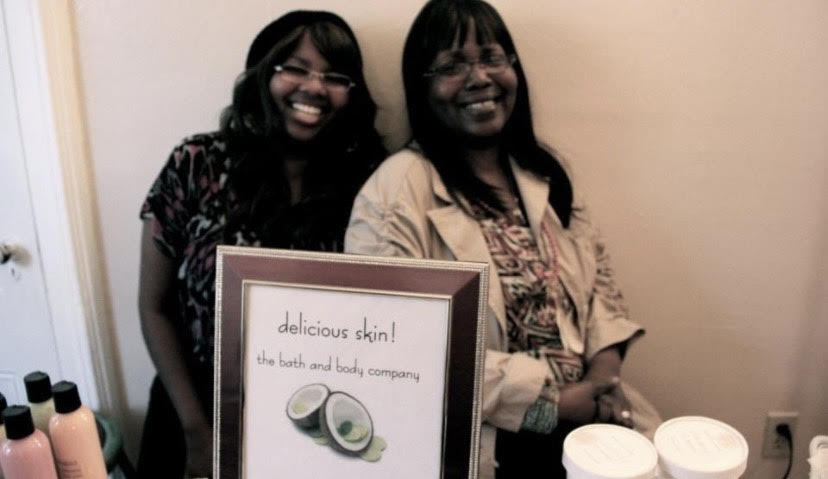Surviving Hepatitis C: Jessica’s Story

Source: Jessica E / other
An estimated 2.5 million people live with hepatitis C in the United States. Some estimates exceed 4 million. Yet, the conversation around hepatitis C is lacking, resulting in less than ideal rates of testing and treatment. According to HHS data, 51 percent of people living with hepatitis C in the U.S. do not know they have the virus.
Research has shown that Black patients are less likely to get tested and receive treatment for hep C, and are more likely to die from related issues like liver disease. These outcomes are avoidable.
A Survivor’s Story
We spoke with Jessica E. about her experience as a hep C survivor—from being diagnosed in her twenties, to fighting for treatment and finally clearing the infection in 2019. The 35-year-old mother of two from Reno, Nevada had to be her own advocate to receive the care she needed.
Jessica’s story is also her mother’s story.
Blood transfusion was a leading cause of hep C transmission until blood screening for HCV (hepatitis C virus) became available in the 1990s. But prior to that, an estimated 290,000 Americans were exposed to the virus through blood transfusion. Jessica’s mother was one of them. She was diagnosed with hep C in October of 2011, years after contracting the virus from a blood transfusion in the 1970s.
Following her mother’s diagnosis, the whole family was tested for HCV. Jessica was the only one who came back positive. She had received hep C from her mother as a baby through vertical transmission. According to the CDC, the risk of vertical transmission of hep C is approximately 4 to 8 percent per pregnancy.
I was confused, I was angry, I was hurt.
Jessica was 23 years old at the time she was diagnosed. “I was confused, I was angry, I was hurt,” she said. Her mother had already sustained significant liver damage at that point, and was started on treatment right away. Jessica, on the other hand, was urged by her doctor to postpone treatment.
“Every single year from the time of me being diagnosed, I would reach out to my GI: ‘Can I get treatment?’ First she denied me because I was too young and I didn’t have kids, and she didn’t want [the treatment] to affect it,” she said. “She would continuously tell me to have kids first before we start the treatment.”
The treatment took a harsh toll on Jessica’s mother. From receiving a second blood transfusion to developing sepsis—she passed away in May of 2012. It was a lightbulb moment for Jessica.
I literally lost my mom to this. I don’t want to end up like her.
Finding treatment was her priority, but it wasn’t easy. “There was some insensitivity going on. I had to tell them, I literally lost my mom to this… I don’t want to end up like her,” she said. “She was only 58 when she died. I did not want that. That was really difficult, getting my voice heard.”

Source: Jessica E / other
Fighting for Treatment
Jessica learned that she had to be her own advocate to get results. She did her research and began reaching out for help.
It was a Craigslist ad that connected Jessica with Sonia Canzater, associate director of the O’Neill Institute for National and Global Health Law and the Hepatitis Policy Project at Georgetown University Law Center. Canzater was searching for people living with hep C who were willing to share their stories. Jessica had found an ally in her quest for treatment.
“[Sonia] was doing a story about people with hep C, and she was so intrigued by my story that she was reaching out to any and everyone she could,” Jessica said.
Years passed before Jessica was finally able to access treatment. In October of 2018, she got a phone call. Treatment was available. “It was literally a call out of nowhere. It was really random, out of the blue. I was not expecting it,” she said. Three days after her 31st birthday, Jessica went on Harvoni, a pill a day regimen, accessing coverage for the costly treatment through private insurance.
Of course, treatment came with sacrifice, including side effects like hair loss. Jessica had to stop breastfeeding her son to get on the medication. “That was probably the worst part, because I just cut him off dry,” she said.
After a few months on Harvoni (December to February), Jessica’s infection cleared in April of 2019. She was cured.
From Survivor to Advocate
But the work didn’t stop there. That summer (July of 2019), Jessica was invited to a summit hosted by the National Viral Hepatitis Roundtable (NVHR) in Atlanta, Georgia, which gathered hepatitis C survivors from across the country.
“There were a lot of people of color. Black, Latin, Asian—we were all there at this event and we stayed in contact with each other,” she said.
Jessica met two survivors at the summit who, like her, received hep C through vertical transmission—but only her mother was not a drug user. “Everyone was so intrigued by our stories. They didn’t realize that what I’m doing can affect my kids,” she said. “It doesn’t just stop with you.”
By telling her story, Jessica is hoping to encourage conversation about hepatitis C. “There is still a stigma that comes with these diseases and diagnoses,” she said.
There is also a lack of adequate testing, Jessica notes. “They still don’t really test people how they should for hep C. It’s like, ‘We’ll check you for syphilis, AIDS and breast cancer, but you’re going to have to ask for this hep C!’”
That’s why it’s important to be your own patient advocate, she says. “You’re not alone. But you need to be an advocate for yourself. If you don’t speak up, you will not get any help. You won’t get treatment. You will be treated so unfairly.”
Jessica had to fight for treatment for years. She had to fight to be heard. Now, she’s hoping to shed light on the issue, and encourage people to talk about hep C, get tested and seek treatment.
Be your own advocate. Because nobody is going to do it for you.
“If this is important to you, if it’s important for you to have a healthy life, to continue life, to have a long-lasting life—be your own advocate,” she said. “You have to talk to these doctors, you have to reach out to these different insurance companies, you have to do the research. You have to. Because nobody is going to do it for you.”







